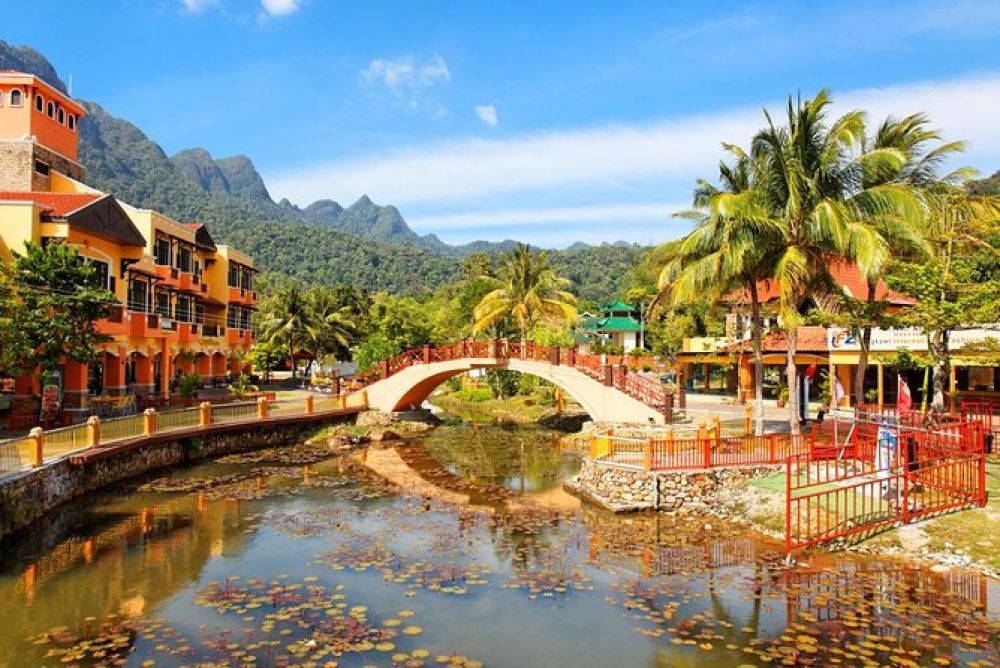

The Langkawi Oriental Village, set on the picturesque island of Langkawi in Malaysia, is not only a unique blend of cultural heritage but also a modern-day center for an array of tourist activities. Langkawi itself, known as the Jewel of Kedah, has been a burgeoning tourist destination since the late 1980s when the island was granted tax-free status.
The history of tourism in Langkawi can be traced back to when it was predominantly a destination for domestic visitors. The Malaysian government's foresight in the 1980s to transform Langkawi into a major tourist hub led to significant investments and developments on the island. The Oriental Village is one such development that arose from this era of enhancement and has since become an integral part of Langkawi's tourism fabric.
The Langkawi Oriental Village was conceptualized as a cultural and leisure park, amalgamating Malaysian architectural styles with oriental charm. The vision was to create an attraction that offered visitors a taste of Asia's diverse cultures and traditions. Over the years, this quaint village has grown to include a mix of retail outlets, restaurants, and entertainment options, all of which are set against the backdrop of the lush green Mat Cincang Mountain range and scenic landscapes.
The cornerstone of the Langkawi Oriental Village is the Langkawi Cable Car, also known as the SkyCab, which gives visitors a breathtaking ride up the mountainside to the second highest peak of Langkawi. The SkyBridge, also located within the vicinity, offers a stunning panoramic view of the island and has become one of the most photographed locations in Malaysia.
Themed attractions like a tiger exhibit, a snake charmer's show, and traditional performances add to the village's allure.
The addition of the Langkawi Oriental Village has significantly impacted the local economy by providing employment opportunities, supporting local artisans and businesses, and drawing tourists from around the world.
In recent years, Langkawi has embraced eco-tourism and sustainable tourism practices to ensure that the island's natural beauty and resources are preserved for future generations. The Oriental Village, too, has followed this trend by advocating for environmentally friendly activities and supporting conservation efforts.
Another trend that has influenced Langkawi's tourism is the digital nomad movement. With more individuals seeking destinations that accommodate long-term stays and remote work, locations like the Oriental Village offer the ideal blend of work and leisure, with ample facilities and connectivity.
The Langkawi Oriental Village continues to be a vibrant part of the island's tourism industry. It serves as a testament to Malaysia's commitment to preserving cultural heritage while also offering modern experiences. As tourism evolves, the village remains a favorite for those seeking a serene yet captivating getaway in the heart of Southeast Asia.